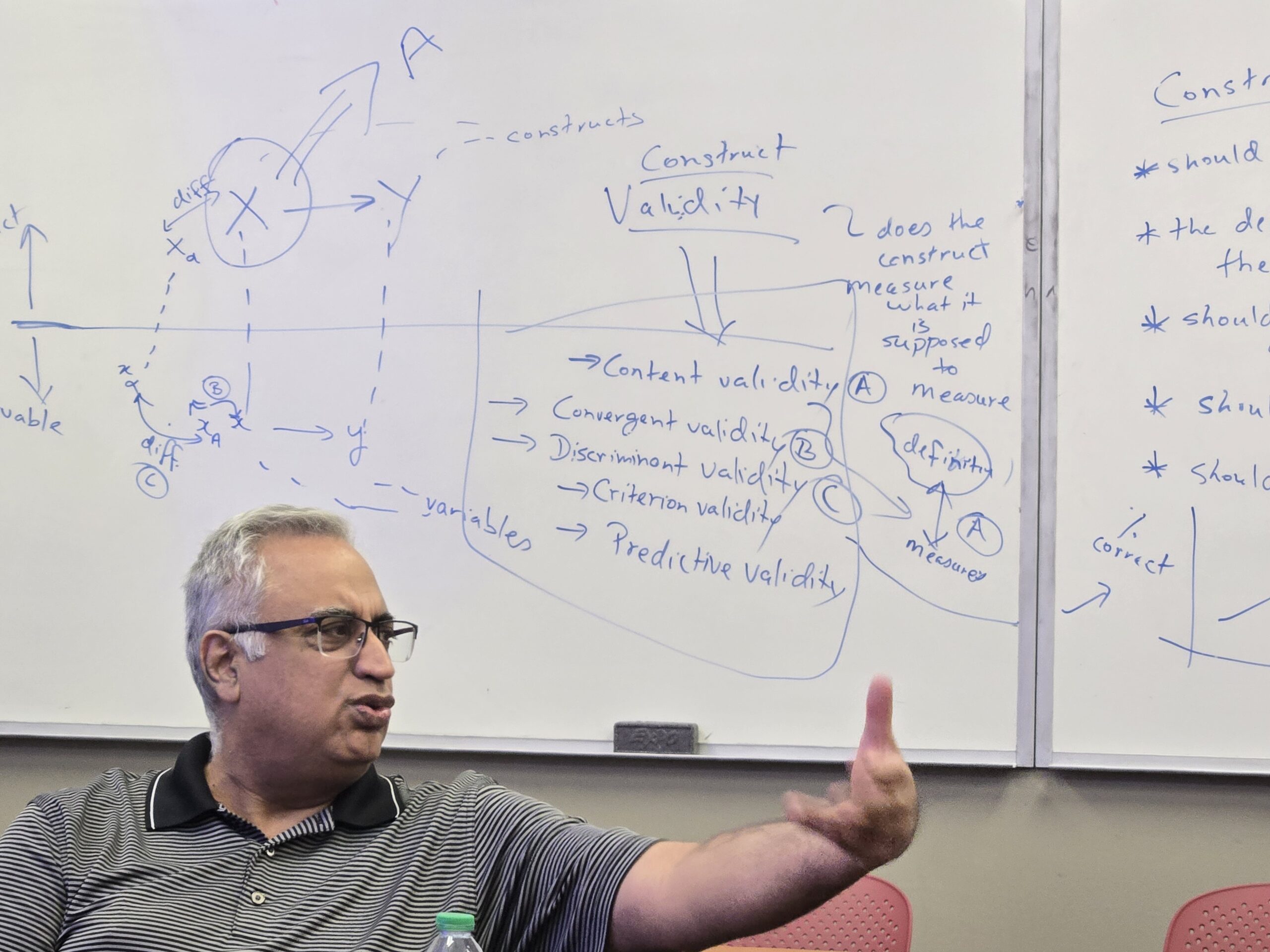Lecture given by Prof. Varun Grover
In his seminal paper, Karl Weick distinguishes between the products of theory and the process of theorizing, underscoring the dynamic and evolving nature of theoretical development. Weick argues that theory is often viewed too rigidly as a finished product, neglecting the ongoing process of refining ideas, testing relationships, and expanding conceptual frameworks. He emphasizes that theorizing is an active, iterative process that draws from both empirical data and abstract constructs, evolving through continuous interaction between the tangible and the conceptual. In this light, theory becomes not just a set of propositions but an evolving narrative that integrates data, hypotheses, and abstraction. Weick challenges traditional notions by proposing that data, especially qualitative data, can carry implicit theoretical content and that hypotheses, though concrete, are closely connected to theory through levels of abstraction. This paper offers a nuanced understanding of the relationship between theory and data, as well as the importance of recognizing theory as a process rather than merely a static product.
Defining Constructs in Theory Development
When focusing on the what of theory, which involves defining constructs, references can support these constructs. You can leverage existing literature to define constructs that others have already conceptualized, providing a solid foundation. Similarly, when looking at the how of theory (the configuration or relationships between constructs), you can support this with references. The why of theory, which is the logic behind these relationships, can also draw upon other disciplines such as psychology or economics to justify reasoning. Therefore, references serve as critical anchor points in the development of theoretical frameworks.
The Role of Qualitative Data in Theory
Qualitative data, like interviews, may seem like everyday language but can possess significant theoretical content. For example, if someone mentions feeling scared of taking risks because of supervision, this points to a potential theoretical relationship: supervision might lead to greater control and restrict perceived autonomy. Weick suggests that data itself, especially qualitative data, can contain theoretical implications, even if initially it is not framed as such.
Data Leading to Theory
Weick argues that theory is not always the starting point. Just like a doctor can prescribe medicine without knowing the exact diagnosis, researchers can propose interventions based on data, which can then inform theory. Descriptive data, followed by practical interventions, might lead to a better understanding of theory, rather than always starting with a theory and testing it.
Variables and Diagrams in Theoretical Development
While variables alone are not theory, Weick suggests they are close to theory because they can contribute to constructing theoretical models. Diagrams, though not fully theoretical by themselves, hold theoretical value because they visually represent paths of influence. Constructing good diagrams is difficult, particularly for complex theories, which makes them theoretically significant—they highlight the explicit recognition of relationships and influence pathways.
Hypotheses as Bridges Between Theory and Data
Weick describes hypotheses as bridges between theory (abstract) and data (concrete). Hypotheses carry theoretical content, but they remain one or two levels of abstraction away from full theory. As you abstract hypotheses, you move closer to theory. Hence, hypotheses, though often considered tangible and measurable, are not devoid of theoretical content. By abstracting multiple hypotheses, you can begin to infer theoretical constructs.
The Continuum of Abstraction
Abstraction is not necessarily a leap from one level to another but can be thought of as a continuum. As you move along this continuum, your constructs become more abstract, leading to broader and more generalizable theories. However, as theories become more abstract, they tend to be less testable or falsifiable. This is the trade-off between theoretical power and empirical testability.
Propositions vs. Hypotheses in Journals
Weick notes that while propositions should underpin hypotheses, they are often implicit rather than explicit in published research. Theoretical sections in top journals (MISQ, ISR, etc.) may present a few core hypotheses, justified by logic from the underlying theory, but the explicit propositional system is often omitted due to space constraints. This lack of explicit propositions doesn’t diminish their importance—understanding the abstract theoretical system is crucial for comprehending the full theoretical framework behind a study.
What_theory_is_not_theorizing-2










Leave a Reply